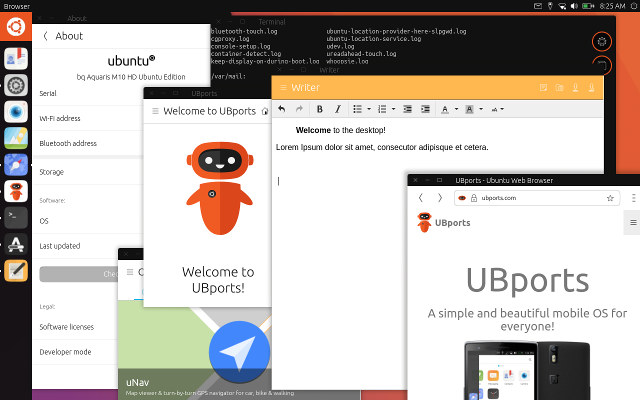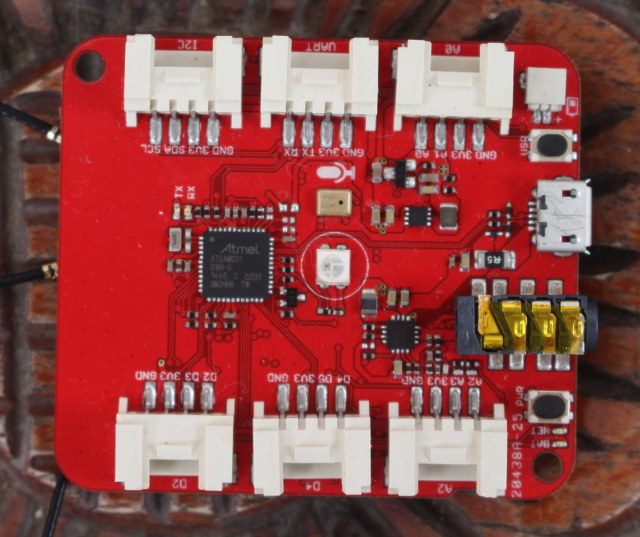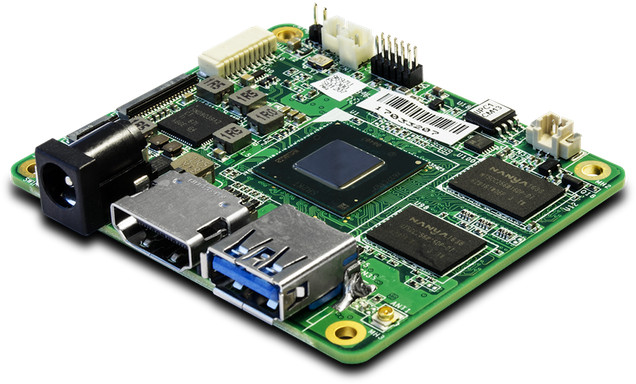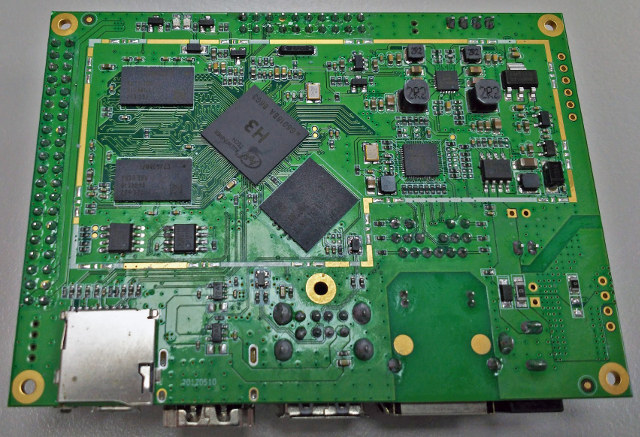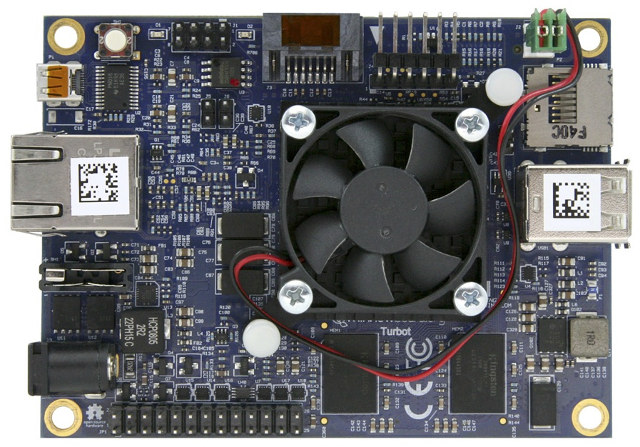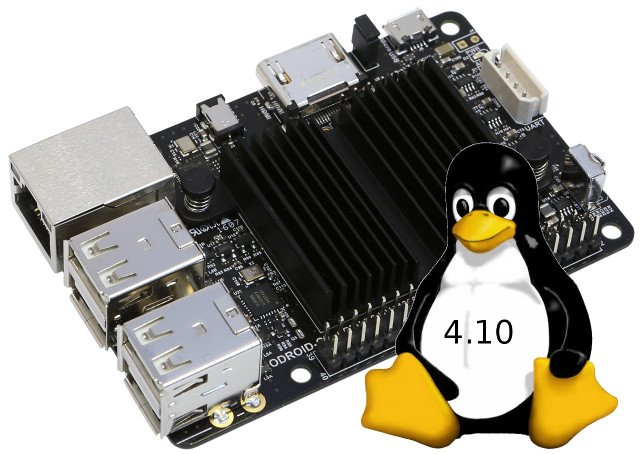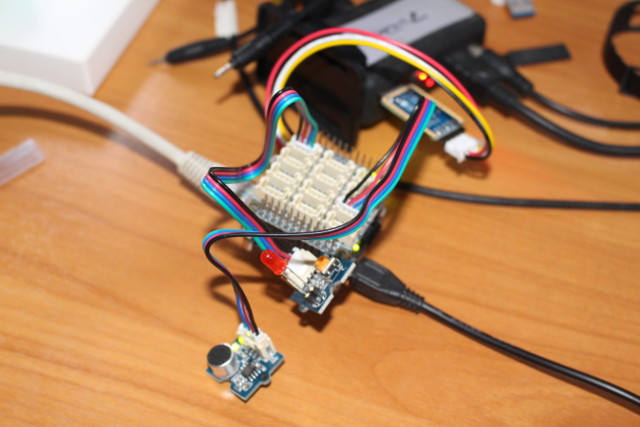Canonical may have stopped working on Unity, Mobile & Convergence for Ubuntu last April, but since then, at least two teams have worked on Unity and mobile convergence alive with respectively yunit and UBPorts projects. There has not been much activity on the former, but UBPorts has recently announced the first OTA-1 stable release for supported devices, minus Nexus 4 and 5 for now. This release brings bug fixes, experimental AGPS support, he UBports Welcome app, the OpenStore, and the Terminal and File Browser are preinstalled. It should work on OnePlus One, FairPhone 2, Optimus L90, BQ Aquaris M10 HD / FHD, and possibly some other models. They also mentioned work on Halium – a project aiming to standardize the Android hardware compatibility layer between many Linux distributions – has been progressing nicely, and it can now boot both Ubuntu Touch and Plasma Mobile. Convergence still needs some work, but […]
Review of Wio Tracker with GPS, Bluetooth 3.0 and GSM Connectivity
Wio GPS – also called Wio Tracker – is an Arduino compatible board based on Microchip Atmel SAMD21 MCU with GPS, Bluetooth, GSM/GPRS connectivity, as well as several Grove connectors to connect sensors and modules for your IoT project. SeeedStudio sent me a sample for evaluation, so I’ve tested it, and reported my experience below by testing some of the Arduino sketches. Wio Tracker Unboxing All I got in the package was Wio GPS tracker v1.1 board. The top includes the Atmel MCU, an RGB LED, a microphone and 3.5mm AUX jack to make phone calls, a user and power button, a micro USB port for power and programming, a small 2-pin connector for a battery, and 6 Grove connectors for digital, serial, I2C and analog modules. The other side of the board comes with Quectel MC20 module that handles Bluetooth, GPS and GSM, a dual use micro SD card […]
Amazon AWS Greengrass Brings Local Compute, Messaging, Data Caching & Sync to ARM & x86 Devices
Amazon Web Services (AWS) provides cloud computing services to manage & store data from IoT Nodes over the Internet, but in some cases latency may be an issue, and Internet connectivity may not be reliable in all locations. AWS Greengrass provides a solution to those issues by running some of the IoT tasks within the local network in ARM or x86 edge gateways running Linux. You can still manage your devices from AWS cloud, but a Linux gateway running Greengrass Core runtime will be able to run AWS Lambda functions to perform tasks locally, keep device data in sync, and communicate with devices running AWS IoT Device SDK. Greengrass benefits include: Response to Local Events in Near Real-time Offline operation – Connected devices can operate with intermittent connectivity to the cloud, and synchronizes with AWS IoT once it is restored Secure Communication – AWS Greengrass authenticates and encrypts device data […]
UP Core Intel Board Has Launched for 69 Euros and Up on Kickstarter
During spring, we discovered UP Core, a tiny board powered by Intel x5-Z8350 Cherry Trail processor that promised to sell for as low as 69 Euros. But at the time, it was not available yet for purchase, and the good news is that UP has just launched a one month crowdfunding campaign on Kickstarter to raise funds for mass production, and promote the board. UP Core specifications have not changed since the first announcement: SoC – Intel Atom x5-Z8350 “Cherry Trail” quad core processor @ 1.44 GHz / 1.92 GHz (Burst frequency) with Intel HD 400 graphics @ 200 / 500 MHz System Memory – 1, 2 or 4 GB DDR3L-1600 Storage – 16, 32, or 64 GB eMMC flash, SPI flash ROM Video Output / Display – HDMI 1.4 port, full eDP (embedded DisplayPort) connector Audio I/O – Via HDMI, and I2S Connectivity – 802.11 b/g/n WiFi @ 2.4 […]
ACT Power unveils its Project-X A1 production ready development board at Computex 2017
These days developer boards are a dime a dozen, but Taiwanese ACT Power has taken a different approach from most companies out there by making their addition production ready. The Project-X A1 is the first in what is expected to be a series of boards that will utilize the same mezzanine board connectors, to make it easy to change hardware platforms over time. The board on display at Computex is still an early prototype and some things will change before the final product launches. Specification wise we’re looking at: SoC – Allwinner H3 quad core Cortex A7 processor @ 1.2 GHz with Mali-400MP2 GPU @ 600 MHz System Memory – 1 GB DDR3 Storage 8GB eMMC flash, SD card slot Video Output – 1x HDMI 1.4a up to 4K @ 30 Hz Audio Output – HDMI, I2S via pin-header Connectivity – Gigabit Ethernet with optional PoE support USB – Two […]
MinnowBoard Turbot Quad Core Open Source Hardware Board is now Shipping for $190
MinnowBoard Turbot Quad Core board was announced last autumn, with shipping expected in December 2016, but there may have been delays as the MinnowBoard foundation has just announced that the Intel open source hardware board is now shipping. MinnowBoard Turbot Quad “MBT-4220” board specifications: SoC – Intel Atom E3845 quad core Bay Trail-I processor @ up to 1.92 GHz with Intel HD graphics @ 542 / 792 MHz (10W TDP) System Memory – 2GB DDR3L 1067 MT/s (Soldered) Storage – 1x SATA2 3Gbps, 1x micro SD card slot, 8 MB SPI Flash for firmware (Tianocore UEFI, Coreboot, SeaBIOS) Video & Audio Output – 1x micro HDMI connector Connectivity – 10/100/1000M Ethernet RJ-45 connector (with Intel i211 instead of Realtek NIC on dual core MinnowBoard) USB – 1x USB 3.0 host, 1x USB 2.0 host Debugging – Serial debug header Expansion headers Low-speed expansion (LSE) port – 2×13 (26-pin) male 0.1″ […]
ODROID-C2 Board Gets Experimental Ubuntu 16.04 Armbian Images with Linux 4.10
Hardkernel is doing a good job at providing working images with GPU / VPU support, and documentation for their ODROID boards. But while Exynos based ODROID-XU4(Q) boards already get firmware images with a recent Linux 4.9 kernel, Amlogic S905 based ODROID-C2 board’s Ubuntu 16.04 images still rely on the Linux 3.14 kernel released by Amlogic, plus various patchsets. But we’ve seen BayLibre is working on a Linux mainline port for Amlogic processors, and Armbian community appears to have leveraged that work, and added Ubuntu 16.04 Server and Desktop images with Linux 4.10 to their build system. Those are experimental nightly builds so they may not have been tested, and it’s likely not working as well as the Ubuntu 16.04 “legacy” images released by Hardkernel. They are also not shown in Armbian ODROID-C2 page at the time of writing, but it’s a step in the right direction. Jean-Luc Aufranc (CNXSoft)Jean-Luc started […]
Using GPIOs on NanoPi NEO 2 Board with BakeBit Starter Kit
NanoPi NEO 2 is a tiny 64-bit ARM development board powered by Allwinner H5 processor. FriendlyELEC sent me a couple of NEO 2 samples together with their BakeBit Start Kit with a NanoHat and various modules via GPIOs, analog input or I2C. I’ve already tested both Armbian with Linux 4.11 and Ubuntu Core Qt with Linux 3.10, and ran a few benchmarks on NanoPi NEO 2. You would normally prefer to use the Armbian image with Linux mainline since it provided better performance, but at the time I was told GPIO support was not there. Configuring NanoPi NEO 2 board with BakeBit library So this week-end, when I decided to test GPIO support and BakeBit Starter Kit, I decided to follow this advice, especially nanopi-neo2-ubuntu-core-qte-sd4g-20170329.img.zip image is still the recommended one in the Wiki. So I went with that image. I’ll use Python examples from Bakebit library, but if you […]


